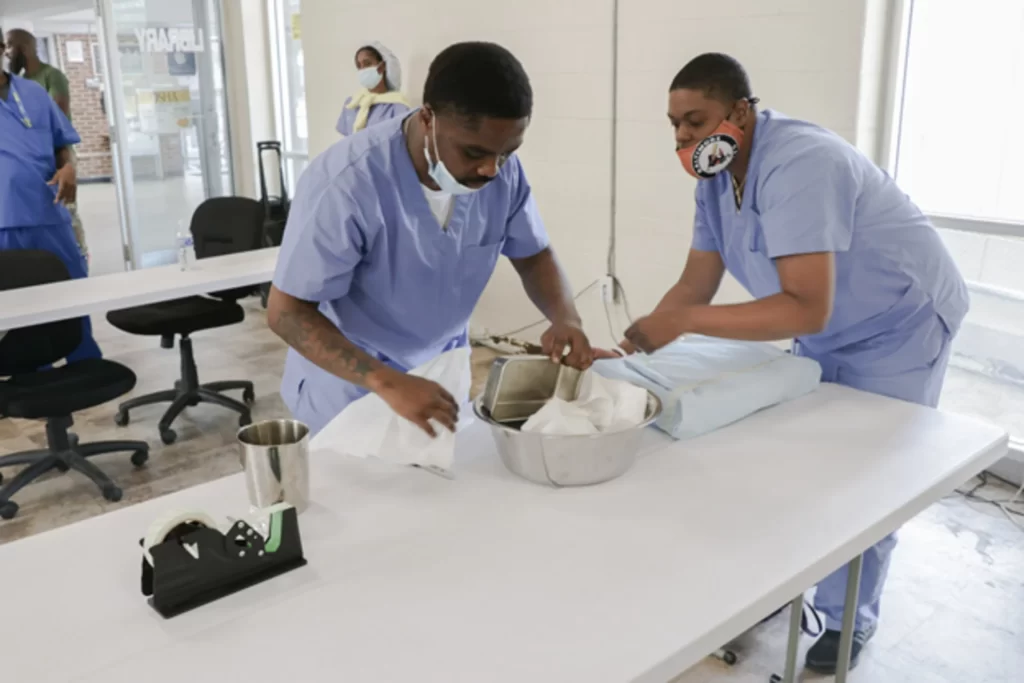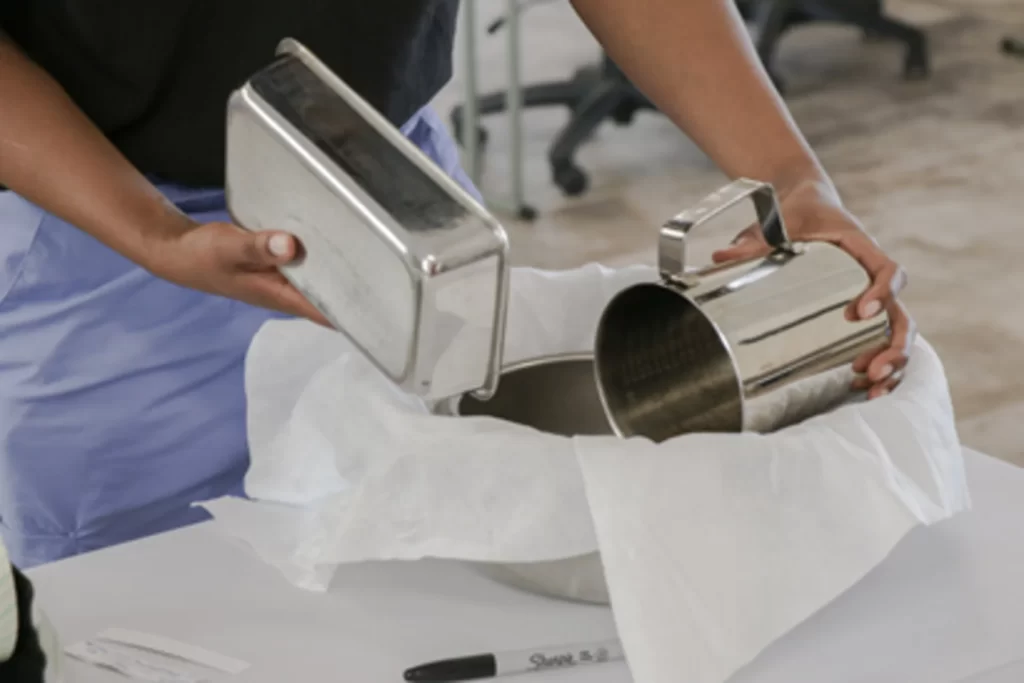In the healthcare sector, sterile processing technicians are crucial. Before being utilized in surgical operations, they ensure that medical tools and equipment are adequately sterilized, cleaned, and wrapped. The position calls for meticulousness, familiarity with infection control protocols, and the capacity to function under time constraints. Let’s look closer at the responsibilities, working environment, and prospects of a sterile processing technician in this post.
Sterilization, cleaning, and packaging of medical devices and equipment are the main responsibilities of a sterile technician. The steps involved in this procedure are as follows:
Usually, the first thing you do when you go to a sterile processing job is look over the schedule for the day to see which instruments and equipment need to be sterilised. Additionally, make sure that you have access to all of the required cleaning tools and supplies.
Sorting and cleaning the instruments come next. To do this, instruments are normally hand scrubbed to remove any apparent debris before being placed in an ultrasonic cleaner to remove any leftover dirt or grime.
The tools must be sterilized once they have been cleaned. Several techniques, such as autoclaving, dry heat sterilization, or chemical sterilization, can be used to accomplish this.
The sterile processing program must put the tools together into trays for use in surgical operations once they have been sterilized. This entails meticulously placing the tools in the proper sequence and making sure that all relevant items are present.
Sterilization equipment must be carefully maintained to ensure that it functions properly. As an SPT, you’ll need to perform routine maintenance tasks, such as cleaning and inspecting equipment, replacing parts as needed, and monitoring sterilization cycles for accuracy.
SPTs often work closely with surgeons and other medical staff to ensure they have the instruments and equipment they need for procedures. You’ll need to communicate clearly and effectively to ensure everyone is on the same page.
Finally, as a sterile tech, you’ll need to maintain a safe and clean environment to ensure that instruments are not contaminated during sterilization. This means always following strict cleaning protocols and wearing appropriate personal protective equipment (PPE).

Sterile Processing Technicians must maintain accurate records of all instruments and equipment, including when they were cleaned, sterilized, and used. This is important for tracking inventory levels, ensuring compliance with hospital policies and regulations, and identifying potential issues or concerns.
In addition to these primary duties, a career in sterile processing involves the following:
Sterile Processing Technicians typically work in healthcare facilities such as hospitals, ambulatory surgery centers, and clinics. They work in sterile processing departments, often located near surgical suites.
The work environment can be fast-paced, especially during busy periods when multiple surgical procedures are scheduled. Sterile processors must be able to work efficiently and accurately to ensure that instruments are properly sterilized and available for use when needed.

The work environment can also be physically demanding, as Sterile Processing Technicians may need to lift heavy instrument trays and equipment. They must also be able to stand for extended periods and have the good manual dexterity to handle small instruments and equipment.
The need for sterile processing technologists is anticipated to rise even further. Per the BLS, sterile processing technicians’ employment is expected to grow 7% between 2019 and 2029, which is faster than the average for all occupations.
The aging population and increasing healthcare demand are predicted to lead to a need for more surgical procedures, which would increase the demand for sterile processing technologists. Additionally, due to advancements in medical technology, sterile processing technicians will need to keep up with new sterilization methods and equipment.
A sterile processing technician must have a keen eye for detail, be well-organized, and adhere to strict guidelines. They make sure that medical procedures are performed in a safe and effective manner, which is essential for the healthcare industry.
Read More